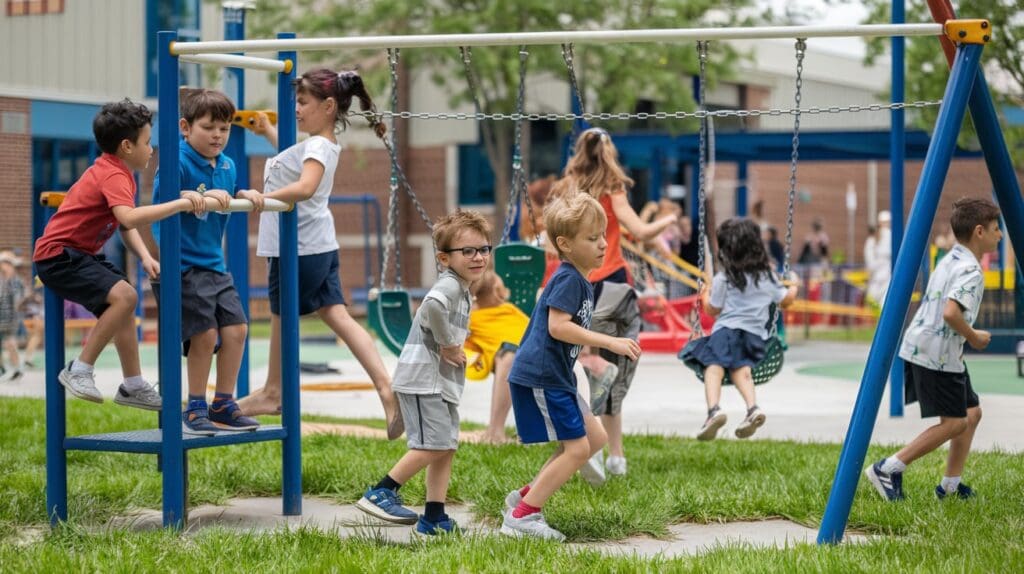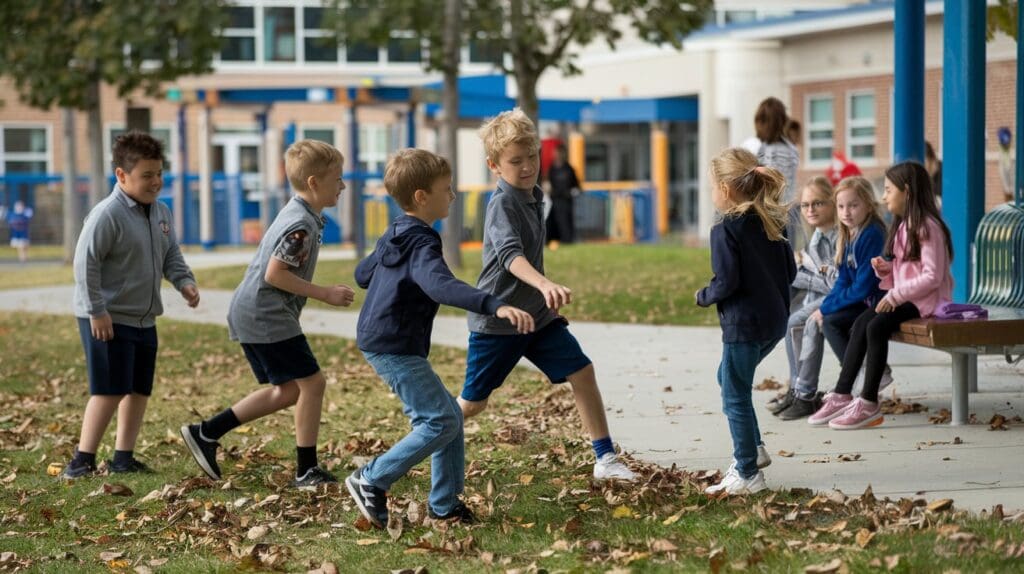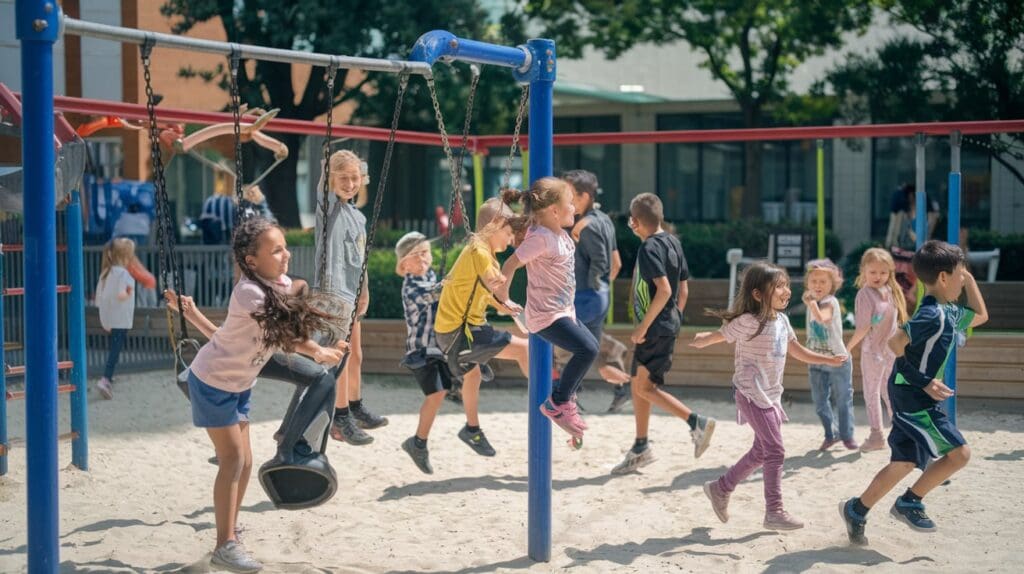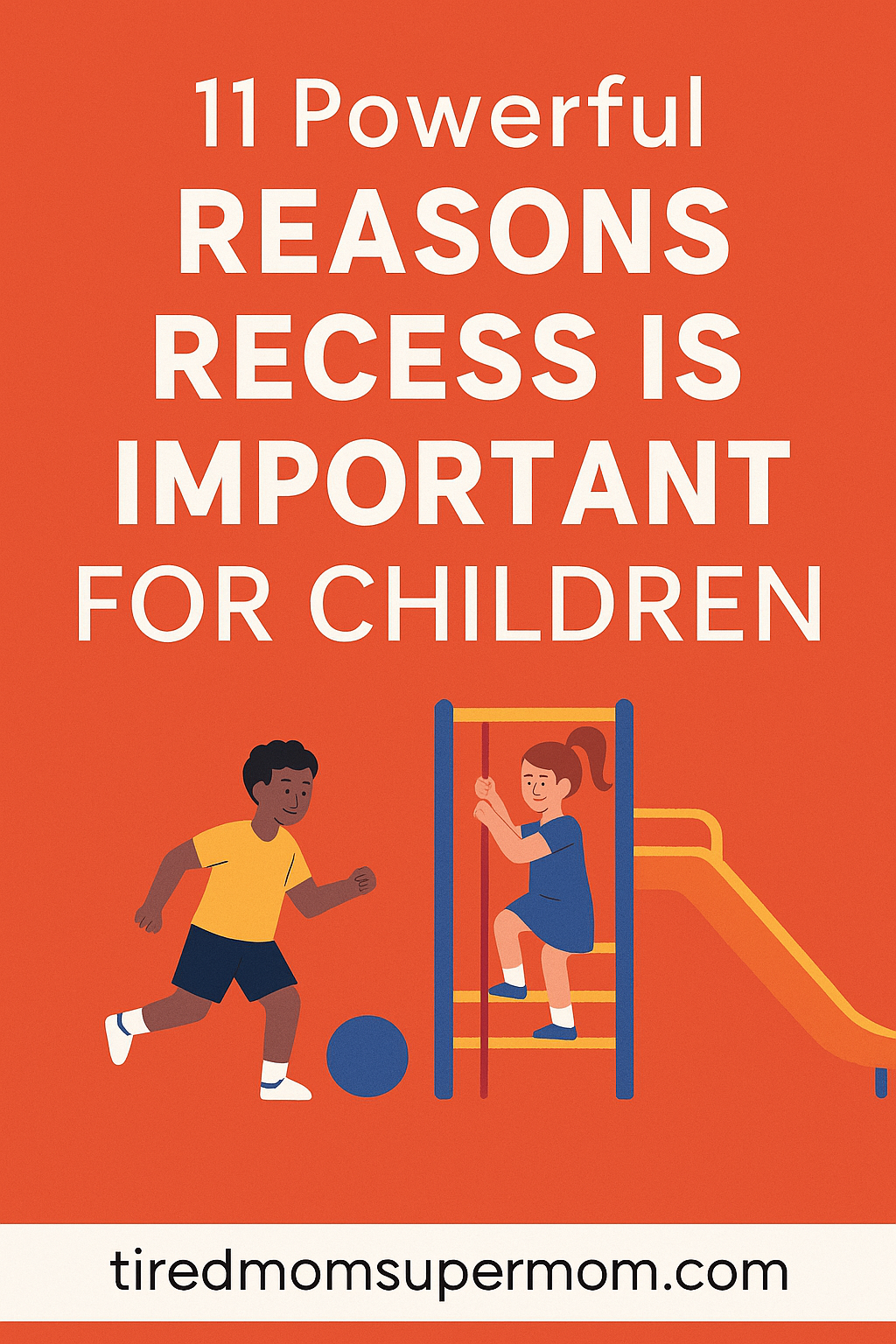11 Powerful Reasons Recess Is Important for Children
Recess isn’t just a break—it’s a brain booster, mood stabilizer, and social skills training ground rolled into one.
Whether it’s structured or free play, the reasons recess is important for children are rooted in better behavior, stronger academics, and healthier bodies.
This post explores 11 research-backed reasons why recess should never be skipped and how parents and schools can support meaningful play.
Heads up: This post may include affiliate links. As an Amazon Associate, I earn from qualifying purchases—at no extra cost to you. Full privacy policy and disclosure here.

Why Recess Still Matters (Especially in 2025)
In a world increasingly focused on test scores and structured learning, unstructured playtime is more vital than ever. The reasons recess is important for children go far beyond just “blowing off steam.” Recess is where kids build friendships, test their limits, and develop resilience—skills that stick with them for life.
1. Recess Supports Physical Health
Children naturally want to move—and they need to. Physical activity during recess:
- Helps reduce the risk of obesity
- Strengthens bones and muscles
- Improves cardiovascular health
- Builds motor coordination and balance
🛍️ Try this playground ball set for easy active play at school or in the backyard.
2. Boosts Academic Performance
Recess isn’t a distraction from learning—it enhances it. Studies show that kids return to class after recess more focused, alert, and ready to absorb information.
- Short play breaks improve memory and attention span
- Physical movement enhances brain activity and neural connections
- Kids with regular recess often perform better on standardized tests
📘 Read more on the CDC’s take on active kids and academics
3. Encourages Emotional Regulation
Children who regularly enjoy unstructured play develop stronger emotional control. Recess allows kids to:
- Cool off after emotional moments
- Practice self-regulation during games
- Reset their energy and reduce frustration
💡 Tip: If your child struggles to unwind after school, explore these fun backyard games for kids to help them decompress.
4. Builds Social Skills
Recess is one of the few times in a child’s day when they can interact freely with peers. This natural social setting teaches kids:
- Conflict resolution
- Negotiation and cooperation
- Empathy and perspective-taking
Whether it’s figuring out teams for tag or helping a friend after a fall, these micro-lessons matter.
5. Inspires Creativity and Imagination
Free play is where imagination thrives. At recess, kids invent games, build forts, and dive into pretend play—all without adult direction.
Check out why every child needs a playhouse for ideas to spark creative play at home.
6. Encourages Independence
Recess gives children a rare moment of freedom in their structured day. Without constant adult instruction, they:
- Learn to make decisions on their own
- Solve problems independently
- Build confidence through self-directed play
This kind of autonomy is foundational for self-esteem.
7. Reduces Behavioral Issues
Classroom management improves when recess is part of the day. According to the American Academy of Pediatrics, withholding recess for misbehavior may actually worsen behavior problems.
Recess acts as:
- A pressure valve for built-up energy
- A mood reset between lessons
- A natural motivator for positive behavior
8. Develops Risk Assessment and Resilience
Children need space to fall, fail, and get back up—literally and figuratively. Recess environments allow them to test boundaries in safe ways.
- Climbing, jumping, and roughhousing build confidence
- Kids learn limits through natural consequences
- Trying new things encourages growth mindset
✅ Related: 18 Surprising Benefits of Kids Playing at Playgrounds
9. Supports Sensory and Motor Development
From spinning on swings to playing hopscotch, recess gives children the kind of movement experiences crucial for sensory integration.
- Helps with balance and coordination
- Improves proprioception and spatial awareness
- Calms overactive nervous systems
Try this outdoor obstacle course kit to develop gross motor skills at home.
10. Counters Screen Time and Sedentary Living
With screen use at an all-time high, recess is often the only time during the school day when kids are truly active.
- Breaks long periods of sitting
- Encourages outdoor time and fresh air
- Offers a vital reset for digitally overstimulated brains
🎮 If your child tends toward screen-based play, explore these fun destructive play ideas for energetic kids instead.
11. Lays the Foundation for Lifelong Habits
Active, joyful play builds the habit of movement, which contributes to long-term health. Kids who love recess are more likely to:
- Stay active into adolescence and adulthood
- See exercise as fun rather than a chore
- Carry forward emotional resilience and social confidence
🏃♀️ For younger kids, check out 54 Fantastic Active Toys for Toddlers to set them up for success.

Final Thoughts: Recess Isn’t Optional—It’s Essential
The reasons recess is important for children aren’t just sentimental—they’re scientific. From physical fitness to emotional intelligence, recess helps kids thrive in ways that classrooms alone can’t deliver. As parents, caregivers, and educators, we can advocate for recess by recognizing its irreplaceable role in child development.
FAQ: Reasons Recess Is Important for Children
Why is recess important for child development?
Recess supports all areas of development—physical, social, emotional, and cognitive. It offers time for kids to move their bodies, develop social skills, and reset their attention between lessons.
How much recess do kids need?
Experts like the CDC recommend at least 20 minutes of recess daily, though many child development professionals advocate for more frequent and longer breaks.
Does recess improve learning?
Yes. Studies show that children who have regular recess perform better academically, return to class more focused, and demonstrate stronger memory and problem-solving skills.
Should schools take away recess as punishment?
No. Removing recess can be counterproductive and increase behavioral issues. The American Academy of Pediatrics recommends using other disciplinary approaches.
What are some alternatives to recess during bad weather?
Indoor movement breaks, active games, and mindfulness activities can serve as partial substitutes, but they shouldn’t replace outdoor recess when weather permits.

Save This for Later!
📌 Pin this post: 11 Powerful Reasons Recess Is Important for Children
✅ Don’t forget to leave a comment sharing your favorite recess memory or how your school handles recess today!

